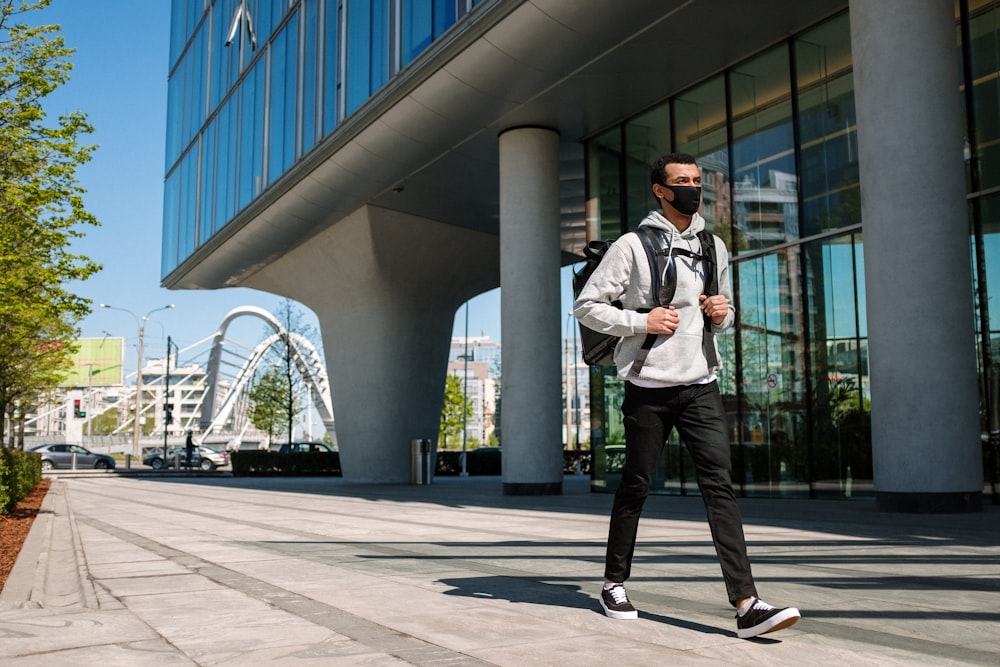After many months of isolation, lockdowns and social distancing, the UK is looking to move progressively out of lockdown. Sonya Turova talked to a few students about some of the issues they have faced over the last few weeks.
In late January, it was announced, according to research carried out by Oxford University, that the UK officially had the highest death rate in the world. On the 5th of January, marking the beginning of 2021, the UK went into its third national lockdown, distinguishable from the first two as it is assisted by a vaccine rollout programme this time. Reasons for the surge in cases are largely credited to the discovery of a new, more lethal strain of coronavirus. Lockdown was put forward as an option to help prevent transmission. Yet interestingly, data indicates that there was no reduction in cases within the first 10 days of lockdown, and only three weeks in did the UK witness a notable fall in infections. And more recently, following the announcement of the roadmap for exiting lockdown, the end seems to be finally in sight.
The initial inefficiency of the third lockdown raised questions of complicity and whether people are abiding by government restrictions. Moreover, young people are identified as being less compliant to restrictions, despite being more likely to carry and transmit the virus. They are generally considered less likely to obey restrictions because they face a lower threat of complications from the virus should they catch it, which may have encouraged some to try and carry on with their lives as per normal. “It was shown that it wasn’t affecting younger people as much,” Anna*, an international student, says, “it made me feel like I’m not prone to catching the virus as much as older people, so I can do whatever I want.”
It would be easy to blame young people for being reckless and continuing to spread the virus during a national lockdown. However, research conducted by the Office for National Statistics (ONS) reveals that significantly more young people, as compared to other age groups, were concerned about the impact that the coronavirus could have on the health of their friends and relatives. This is because younger people are more likely to have older family members who could be vulnerable to the virus. However, Jessica*, a final year student, admits to feeling relatively nonchalant about it: “On the whole, I feel quite positive that if someone gets it, they’ll recover.” But final year student Hailey’s* concern comes from having family who work in the NHS. “It’s worrying knowing that they’re dealing with it every day first-hand and that they could catch it and become really ill,” she remarks. So it would be ignorant to stereotype young people as completely indifferent to the effects by the effects of coronavirus, even if those effects are minor or indirect. If young people are ignoring restrictions, what’s compelling them to do so?

Many university students argue that they have been neglected by the government throughout the COVID-19 pandemic. The UK government has faced criticism for failing to advise university students on things like returning to university accommodation as well as increasing frustration over having to pay full tuition fees for purely online learning. Likewise, three quarters of young people felt as though the pandemic had changed their future life plans. Around half reported that online learning was negatively impacting their wellbeing and that they did not feel as though they could do well in their studies from home. Turns out, this can encourage the defiance against restrictions which according to political theory, is a form of civil disobedience, usually stemming from government dissatisfaction. One international student, Scarlet*, agrees that the government hasn’t supported students enough. “At the end of the day, it doesn’t seem like they care so I’m not really going to be following the rules,” she says, whereas Jessica feels like students weren’t made aware of the situation early on enough. “My flatmate and I entered another tenancy agreement because we didn’t know what it was going to be like in October,” she says. Anna speaks of how international students were also affected by the government’s lack of attention: “They should have considered people coming from different countries. They already had plans to come to the UK and had sorted out their accommodation.” Regarding the debate surrounding tuition fees, Samuel* says: “it’s bullshit that we’re even paying tuition fees to start with anyway. I think education should be free, so the problem is that we pay tuition fees, full stop.”
In addition, some students don’t feel that they’re benefiting from the shift to an online learning system; “like when you go [to a teacher] in person, you can go over a problem over and over again until you understand it, but now you have to email them, which usually takes some time and sometimes they don’t even reply to you,” Scarlet says. “I get so distracted. I think it’s just annoying, like I think pre-recorded lectures are okay, but Zoom classes are so much harder to contribute in and engage in,” says Hailey. “Personally speaking, my lectures are shit,” Anna puts it, “the professors barely know how to use Zoom, don’t answer your emails and we just don’t really know what’s going on.” “The main downside is not being able to meet new people,” says Samuel, “but I feel more comfortable contributing in Zoom classes. So in a way the experience has been better, I’ve been attending academic support hours more because I don’t have to walk all the way to the office.”
Many students have also made comments on the government’s handling of coronavirus as a whole. “I think Eat Out to Help Out was a mistake,” says Hailey, “that was just encouraging social mixing when they were also trying to discourage it. It was kind of like catch 22.” Samuel also pointed out that the scheme wasn’t a good idea. Although Jessica was initially sceptical of the government at the start, she has warmed in her views towards them. “It was an unknown virus, and I think the UK has done well. The vaccine definitely has made me feel like they’re handling it.”

One thing that government data has found is that young people struggle to cope with self-isolation. Scarlet, who identifies as an extrovert, says: “I genuinely feel like I need to see someone every single day.” Samuel believes that self-isolation doesn’t come naturally to people, “We’re social beings, we need to interact with people. In a way, you’re killing people by not allowing them to live to save a few others.” ONS research shows that individuals aged 16 – 29 were significantly more likely to worry about the pandemic challenging their relationships, as they are less likely than other age groups to be living with their loved ones. The temptation to visit friends during lockdown may be enabled by the UK’s approach, which relies more on public cooperation to stay at home. “I never see the police here,” Scarlet says. Referring to her home country, she points out that: “Since the first lockdown, if you break the rules, you’d be fined and then it would go on your criminal record.” She feels like she can still socialise with confidence in the UK because she hasn’t noticed any changes in surveillance. Likewise, Anna observes differences between the UK and how her home country dealt with the virus. “I think it’s more lenient here. If people don’t wear masks, they get let off the hook really easily and there wasn’t a lot of testing available at first.” Samuel also feels as though he hasn’t had to change the way he socialises during lockdown. “I was with two other people on campus,” he recalls, “and security came up to us and told us we had to move. So we just went somewhere else without security and kept on doing what we were doing. So I’m still doing the things I want to do.”

Young people were also more likely to report feelings of loneliness and boredom, according to ONS. This is true for Hailey: “boredom’s massive. Loneliness depends on the day and on who I’ve been speaking to.” These feelings might be intensified by living away from family, especially as having to study makes living at home an unrealistic option for some. “I love my family,” Jessica says, “but you don’t get that level of privacy at home,” Anna feels the same way: “I would rather live at university than at home. My housemates are in the same boat as me as they have their studies too, and we can all have the same routine whereas back home, everybody has different routines and might clash with each other,”
But young people are more prone to experiencing these feelings even in the absence of a pandemic. Jessica admits to having experienced pre-lockdown boredom and loneliness, but contends that: “then I would just go out and do something, whereas boredom’s more of a state during lockdown.” “I think people do feel more lonely, but I think they felt lonely before, they just didn’t see it back then,” observes Samuel. The 2018 BBC Loneliness Experiment captured 40% of 16 – 24 year olds feeling lonely often or very often, and we cannot overlook the role that social media has played in creating this statistic. Young people are the highest users of social media sites, and research has uncovered that high internet usage leads to loneliness, social anxiety and depression. These feelings could be exacerbated by lockdown, as the Internet becomes the main source of amusement.
At the start of the third lockdown, I deleted my own social media accounts. Looking at Instagram stories of other students began triggering feelings of relative deprivation within me, and I began comparing my lockdown life to others who appeared to be able to socialise and have a good time way more than I could, even though it was probably just an illusion. Both Hailey and Scarlet observed relative deprivation in relation to people they followed from lockdown-free countries. “I’ve got people I know from Australia and New Zealand on social media. So when I see their stories, that’s when I feel like I’m missing out,” says Hailey. Samuel also regulates his social media usage to avoid negative feelings – “if I’m feeling bad, I try not to use social media because then I feel miserable. Even when I use it, I try to only look at stories of people I won’t feel envious of.” On the other hand, Anna believes that social media can be a valuable tool during lockdown. “I FaceTime my friends because I can’t go and see them. Social media’s been like a companion, almost, because I’ve been able to use it to distract myself from boredom. I think it was there for me in a positive way,”

Research by Perlman and Peplau found that loneliness can come as a result of changes to expectations. Obviously, most students hadn’t anticipated a pandemic as part of their uni experience. Scarlet, who is currently a second year, feels disappointed by her experience so far. “The pandemic destroyed my first year experience,” she explains, “it’s supposed to be the year you enjoy yourself a little bit more, party, meet new people, and I ended up going back home in March.” Jessica’s expectations started out high even in the midst of the pandemic, before the start of this academic year: “I was really optimistic, like in my mind clubs were going to open. So I was a little bit more optimistic compared to what actually happened.” She also thinks that Essex played into that narrative, “there was only a two-week timetable given out at first, and they were like, we’re going to revise it in a month and try and get everyone back onto campus.” Anna has felt let down in her expectations, “I thought I was going to have a graduation, like throw my cap in the air, but that’s not going to happen and that’s a bit sad because I think you all wait for that day.” The onset of a pandemic and the transition to online learning has undoubtedly affected students’ university experience. Combined with living away from their families, for the first time for some, feeling bored and lonely could be inevitable and may explain their desires for higher levels of social interaction.
Mental health is also a huge deciding factor for the actions that young people take during lockdown. A survey carried out by Young Minds found that 80% of respondents felt that the pandemic had worsened their mental health. Likewise, research by Mind shows that almost three quarters of those suffering from eating disorders, PTSD and OCD and 77% of those with personality disorders saw their conditions worsening as a result of the pandemic. Meanwhile, a higher than average number of young adults reported experiencing anxiety and depression, and were more likely than other age groups to engage in substance abuse and have suicidal thoughts. Scarlet’s mental health deteriorated in response to news of the third lockdown. “I just felt a bit depressed,” she says, “I didn’t recognise myself, because I wanted to go out and socialise and meet new people, and then I didn’t want to get out of bed and had no motivation to do anything.” “I’ve always had mental illness,” Jessica says, “but what changed for me in lockdown was the level of anxiety. Now I get anxious if I’m around a lot of people, but in the past, being around other people was what alleviated my anxiety.” Samuel is affected by mental illness too, but indirectly. “My mum’s got depression, and for people like that, lockdown makes things worse by isolating them from everyone else,” he says. The Health Foundation notes that the pandemic has robbed people with mental health problems of their coping mechanisms, which usually include socialising, work and exercise. “Being around other people lets me detach from that voice in my head that’s always negative,” Jessica says. “Socialising makes you realise that other people can feel the same way as you as well,” comments Hailey, “it’s kind of comforting.” Moreover, UK mental health services have been struggling to meet the demand of this lockdown-induced mental health crisis, resulting in reduced access to mental health services.
The reasons for students continuing to socialise during lockdown range from trivial, like trying to avoid boredom, to serious, such as using social interaction as a coping mechanism for their mental health. Either way, it brings into question whether lockdown is a realistic solution for ending the pandemic, and has shone light on how young people react when their freedom is infringed.
Pingback: The Only Way is Essex(istential Dread) – Sonya Turova